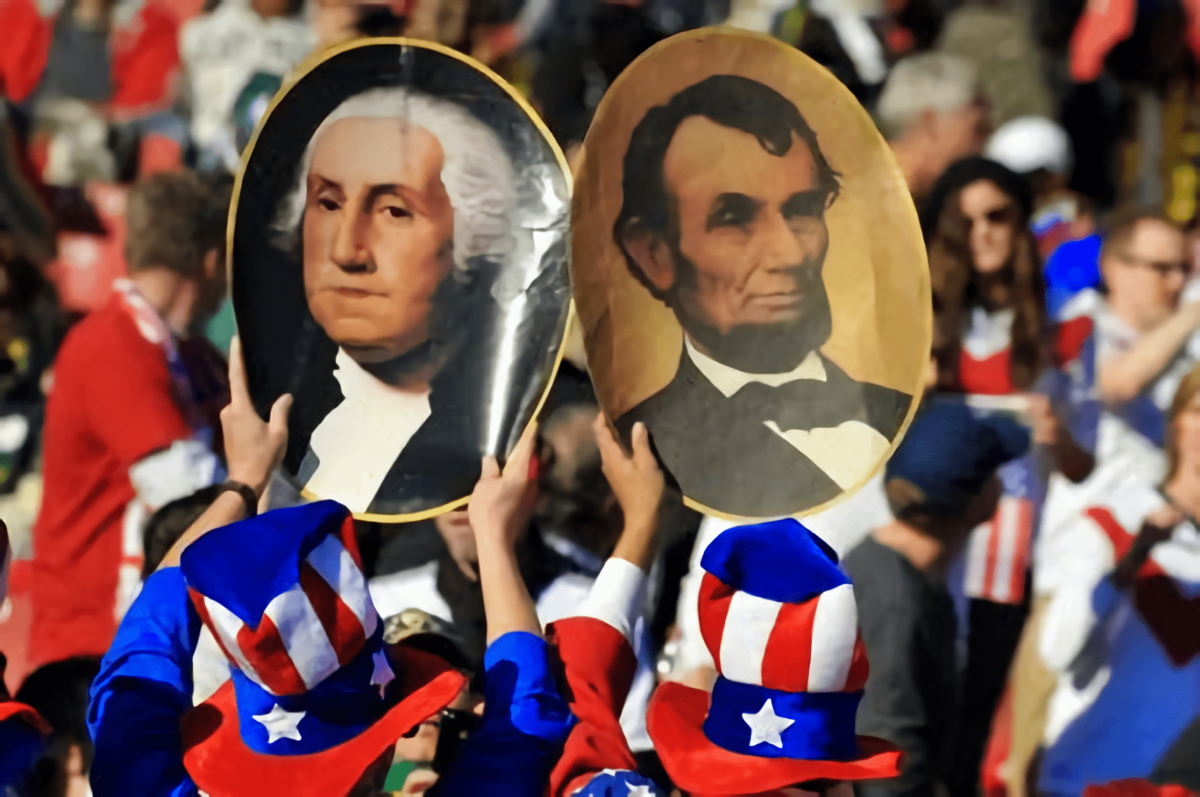President’s Day: A Celebration of Leadership and American History
Related Articles: President’s Day: A Celebration of Leadership and American History
Introduction
In this auspicious occasion, we are delighted to delve into the intriguing topic related to President’s Day: A Celebration of Leadership and American History. Let’s weave interesting information and offer fresh perspectives to the readers.
Table of Content
President’s Day: A Celebration of Leadership and American History

February 2025 will see the observance of President’s Day, a federal holiday celebrated on the third Monday of February. While often mistakenly referred to as Washington’s Birthday, President’s Day holds a broader significance, commemorating the birthdays of George Washington, the first President of the United States, and Abraham Lincoln, the sixteenth President, along with all other past presidents.
The holiday’s origins trace back to 1879, when Washington’s Birthday was first declared a federal holiday. Initially, it was celebrated on February 22nd, Washington’s actual birthdate. However, in 1971, the Uniform Monday Holiday Act shifted the observance to the third Monday of February, aiming to create a three-day weekend for federal employees and encourage travel and leisure activities.
Over time, the holiday evolved to encompass a broader recognition of presidential leadership and its impact on American history. This shift reflects the understanding that the legacy of presidents extends beyond individual birthdays, encompassing their contributions to the nation’s development, its political landscape, and its cultural identity.
President’s Day serves as a reminder of the pivotal role presidents have played in shaping the United States. It provides an opportunity to reflect on their achievements, their challenges, and their enduring impact on the nation’s trajectory. From Washington’s establishment of the federal government to Lincoln’s preservation of the Union during the Civil War, each president has left an indelible mark on the American narrative.
The holiday also offers a platform for engaging in discussions about the presidency itself, its responsibilities, and its evolving role in a democratic society. It encourages critical analysis of the past, present, and future of presidential leadership, prompting reflection on the challenges and opportunities facing the nation and its elected officials.
Beyond its historical significance, President’s Day also offers practical benefits:
- Economic Stimulus: The three-day weekend fosters travel and tourism, boosting local economies and supporting various industries, from hospitality and retail to transportation and entertainment.
- Family Time: It provides an opportunity for families to spend quality time together, engaging in activities that strengthen bonds and create lasting memories.
- Civic Engagement: The holiday serves as a reminder of the importance of civic participation, encouraging citizens to actively engage in their communities and contribute to the nation’s well-being.
Frequently Asked Questions (FAQs):
Q: Why is President’s Day celebrated on the third Monday of February?
A: The Uniform Monday Holiday Act of 1971 shifted the observance of Washington’s Birthday to the third Monday of February to create a three-day weekend for federal employees.
Q: Does President’s Day celebrate only George Washington and Abraham Lincoln?
A: While Washington and Lincoln are prominent figures associated with the holiday, President’s Day acknowledges the contributions of all past presidents to American history.
Q: What are some traditional activities associated with President’s Day?
A: Traditional activities include visiting historical sites, attending parades and events, engaging in family gatherings, and enjoying leisure activities.
Q: Is President’s Day a federal holiday?
A: Yes, President’s Day is a federal holiday, meaning that federal employees receive a paid day off.
Q: What are some tips for celebrating President’s Day?
A:
- Visit a historical site: Explore museums, historical landmarks, or presidential libraries to learn about the lives and legacies of past presidents.
- Attend a local event: Many communities host parades, concerts, or other events to commemorate the holiday.
- Engage in family activities: Plan a family outing, a game night, or a movie marathon to enjoy quality time together.
- Reflect on American history: Take time to reflect on the contributions of past presidents and their impact on the nation.
- Volunteer in your community: Give back to your community by volunteering at a local organization or participating in a service project.
Conclusion:
President’s Day, while rooted in the commemoration of specific presidents, has evolved into a broader celebration of American leadership and its impact on the nation’s history. The holiday offers a valuable opportunity for reflection, education, and civic engagement, reminding us of the importance of responsible leadership and the enduring legacy of past presidents. It also provides a chance to enjoy a well-deserved break, fostering family time and economic activity. As we celebrate President’s Day in February 2025, let us remember the contributions of those who have served our nation and strive to uphold the values of democracy, liberty, and justice for all.








Closure
Thus, we hope this article has provided valuable insights into President’s Day: A Celebration of Leadership and American History. We thank you for taking the time to read this article. See you in our next article!
